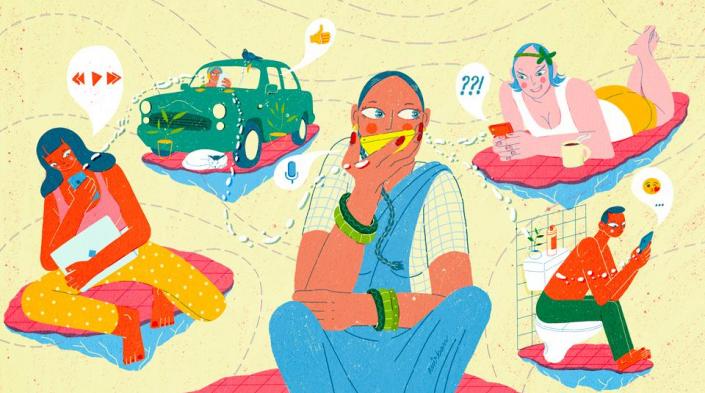
Published on
Page last updated on
While the common global refrain has been that we live in unprecedented times, it shouldn’t be remembered to mean the worst alone. It has also engendered the exposure of the egregious systemic violence faced by many, many communities across the world. Speaking from the context of India, it has made clear the numerous ways that deep discrimination continued despite the veneer of democratic rule. Its citizens have always been divided across the lines of caste, creed, class, corporeal constitutions and carnal desires.
And now, the pandemic has laid bare all of these truths. Being further pushed into our bubbles to adhere to prevention (protection?) protocols, there has been an overwhelming need to reach out to one another through any means available to us. And this universal search has managed to wipe down, slightly, the stigma around seeking mental health support. There has been a marked increase in people turning towards technology as a means to more easily access therapy services.
“The pandemic has given everyone permission to not be okay. Everyone needs help, so no one stands out,” offers Kusum Dhar Prabhu, a Jungian psychoanalyst. And she is also quick to add that “this shift has been easier for some people more than others.” Through her own practice, she has found that while technology platforms have eased access to sessions, this approach has its own troubles. “For those used to in-person sessions, it has become harder to carve out time and space from their children running around, or the possibility of being overheard because everyone is at home now definitely affects the flow but also disturbs the safety aspect.
There are also the difficulties of accessing or using technology in the first place,” she points out. “People are finding ways to work around this too, they’ve been sitting in their cars, or marking out space away from their families since everyone is at home all the time now to still make these meetings happen,” she adds. It seems that technology has dropped one of the hurdles to accessing mental health support.
Continue reading at GenderIT.org.


